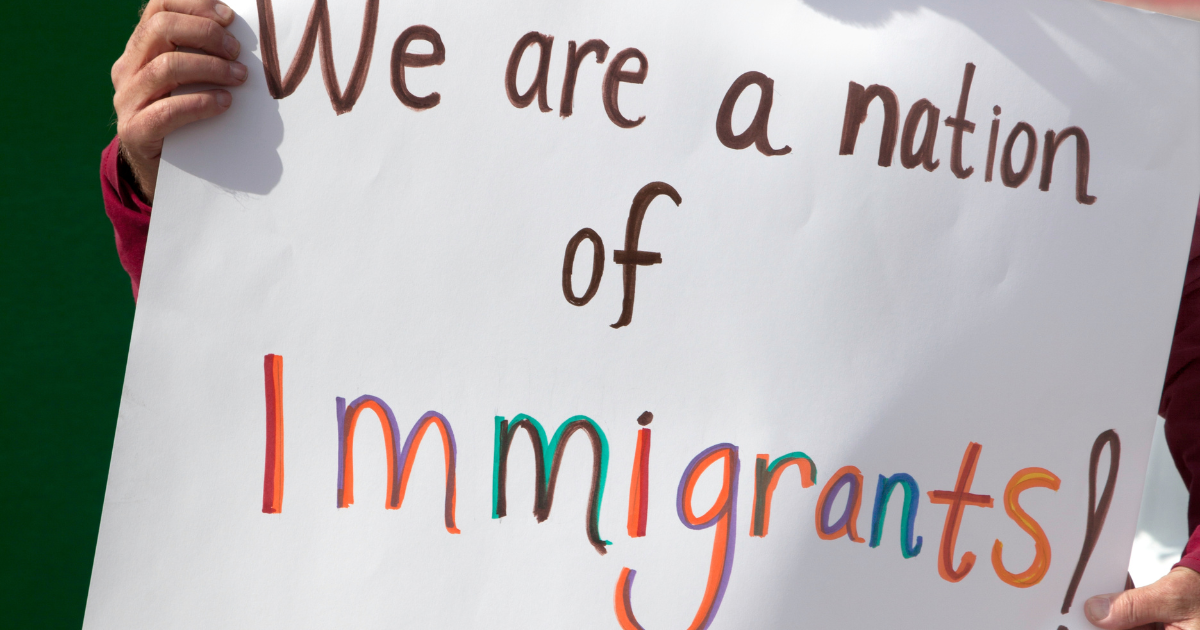
07 Mar Can Noncitizens Buy Health Insurance Marketplace Plans?
In order to buy a plan from the Health Insurance Marketplace, someone must (1) live in the United States; (2) be a U.S. citizen, a U.S. National, or be lawfully present in the U.S.; and (3) not be incarcerated.
Immigration law can be complicated and there are many rules about who is “lawfully present.” Generally, people who are in the U.S. without documentation (e.g., a visa) are not able to buy health insurance through the Marketplace. But there are some very limited exceptions.
Who is lawfully present?
To see who qualifies to use the Marketplace, visit HealthCare.gov. Some common groups of individuals who are included are: lawful permanent residents (LPR/Green Card holders); asylees; and refugees, but there are many others.
For example, there are individuals with non-immigrant status. This includes worker visas (such as H1, H-2A, H-2B), student visas, U-visa, T-visa, and other visas, and citizens of Micronesia, the Marshall Islands, and Palau.
Can I visit the U.S. solely to get medical care?
Travel to the U.S. solely to get medical care is typically done using a B-2 (tourism) visa. There are special requirements. The U.S. government can request documentation of your medical diagnosis from a local physician; a letter from a U.S. doctor or medical facility stating they are willing to treat you; the estimated length and cost of treatment; and proof that your transportation, medical, and living expenses in the U.S. will be paid.
While a change of residence (e.g., moving from a foreign country to the U.S.) generally provides a Special Enrollment Period to buy a Marketplace plan, “moving only for medical treatment or staying somewhere for vacation doesn’t qualify you for a Special Enrollment Period.”
Can I get financial assistance?
Individuals who are lawfully present may be eligible for financial assistance with the costs of their health insurance (i.e., lower monthly premiums and out-of-pocket costs). The amount of financial assistance depends on the size of your household and income.
Members of a family may have different immigration statuses. Some family members may be lawfully present and eligible for a Marketplace plan, while others may not be. In this situation, a family can apply for financial assistance for just the members who are eligible for a Marketplace plan. Family members who are not applying for coverage should not be asked about their immigration status.
What if someone doesn’t have documents?
Generally, while individuals without documentation are not eligible to buy a Marketplace plan or get financial assistance, Colorado and Washington have new laws:
- Colorado: In 2021, Colorado passed a law allowing individuals without documentation who are living in the state to buy insurance through their Marketplace. Companies selling health insurance in Colorado must offer plans with a specific set of lower, fixed costs that are known as Colorado Option plans. These plans can be purchased through OmniSalud (part of the Colorado Marketplace.) Special financial assistance options are also available. For full details, visit OmniSalud.
- Washington: Beginning January 1, 2024, individuals without documentation in Washington will be able to buy insurance through the Marketplace. Individuals will also have access to a state affordability program called Cascade Care Savings to help with costs. Learn more.
Are there other health insurance options?
Even if they can’t access the Marketplace, individuals without documentation may still have some options for health insurance coverage. They may be able to apply for Medicaid, depending on the state where they live.
In some states, only “emergency” Medicaid is available (and in most cases, cancer care is not included in “emergency care”).
But, other states have expanded their full Medicaid programs to provide health insurance coverage for some or all low-income adults.
Individuals without documentation may also be able to get medical care in a community-based facility such as a Federally Qualified Health Center, a Rural Health Clinic, or a local clinic.
For more information about health insurance options, visit TriageCancer.org/HealthInsurance.
About Triage Cancer
Triage Cancer is a national, nonprofit providing free education to people diagnosed with cancer, caregivers, and health care professionals on cancer-related legal and practical issues. Through events, materials, and resources, Triage Cancer is dedicated to helping people move beyond diagnosis.
We're glad you find this resource helpful! Please feel free to share it with your communities or to post a link on your organization's website. However, this content may not be reproduced, in whole or in part, without the express permission of Triage Cancer. Please email us at info@TriageCancer.org to request permission. © 2023 Triage Cancer


